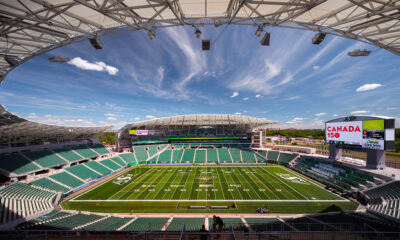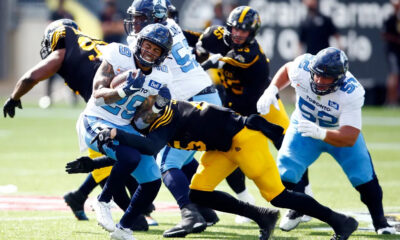
Federal law differs from provincial law
While it is well-known that Canadians like to gamble, what can surprise those unfamiliar with the country’s legal system is that each province is self-governing in regulating gambling activity in its jurisdiction. So, even while laws can change at a federal level, how they are implemented is entirely up to the individual province. Until relatively recently, it was against the Criminal Code of Canada to have single-event betting; the way around this was for provinces that wanted to allow wagering to offer parlay bets. When the law was changed in 2021 to make single-event betting legal, it did not automatically change behaviour across the country.
Single-event betting is still relatively unknown
Despite almost 70% of Canadians admitting to having spent money on gambling, less than 20% of them are aware that it is no longer against the law to place a bet on a single event. The main brake on this form of sports betting is that most of the provinces have yet to decide how to regulate this form of legal sports betting, be it on the hockey, basketball or soccer. Only Ontario and Alberta have actively welcomed third-party operators into their markets. It is rumoured that British Columbia could be the next market to open up, but no legislation has yet been tabled to this effect.
Plenty of casino choice
While each province has its own regulations, mobile and internet casino gambling is widely available across the country, and there are over 150 online casinos in Canada from which players can choose. Most players check out online reviews before making any deposits as some platforms offer a superior entertainment experience to others, and some are downright best to avoid.
Here is a roundup of what each province currently offers its residents.
Alberta
Gambling in Alberta is regulated by the Alberta Gaming, Liquor and Cannabis Commission under the Gaming, Liquor, and Cannabis Act. Online choices are relatively limited, and there are 25 offline casinos across this vast province, with 15 other locations offering horse racing. There are daily lotteries and over 6,000 video lottery terminals. Sports betting is still multi-event, with a daily limit of $250.
British Columbia
Here it is the Gaming Policy and Enforcement Branch that oversees a diverse blend of traditional and modern gambling through the province’s BCLC platform. Funds generated by lottery, casinos and sports betting contribute to healthcare, education and community projects. In addition there are 15 land-based casinos, mostly concentrated in Vancouver and live wagering at Fraser Downs racetrack.
Manitoba
The Manitoba Liquor and Lotteries Corporation offers various gambling options, including the government-run PlayNow platform with a fairly limited range of casino games. Winnipeg has government-run and 1st Nation-owned land-based casinos. There are also video lottery terminals throughout the province, and multi-event sports wagering is limited to $250 a day.
New Brunswick
New Brunswick has its Gaming Control Branch of the Department of Public Safety to enforce the Gaming Control Act of 2008. Its small population has plenty of options, and while there are no official licensed operators, regulated Canadian gambling sites are easily accessible. There is the land-based Casino New Brunswick in Moncton, and there is live racing from Fredericton and Saint John. In addition, Dieppe and Quispamsis have off-track betting. Lottery tickets are available from retailers, and video lottery terminals are widely available.
Newfoundland and Labrador
Multiple options to gamble are offered under the Atlantic Lottery Corporation and Newfoundland Service regulation, but there are no land-based casinos or ‘legal’ online casinos here. However, international sites cater to the residents’ needs, the lottery is widely accessible, and there are over 500 video lottery terminals.
Nova Scotia
In Novia Scotia, gambling is regulated under the Gaming Control Act of 1994-1995, with the Nova Scotia Gaming Corporation (NSGC) operating land-based casinos in Halifax and Sydney and three horseracing tracks. The Atlantic Lottery Corporation manages over 3000 video lottery terminals and residents access globally regulated online casinos and sportsbooks.
Ontario
Ontario is the only province that offers a fully regulated gambling market open to all licensed third-party commercial online casinos and sports books under the auspices of iGaming Ontario. In addition, there are land-based casinos, as well as private and charitable lotteries. All forms of gambling are accessible to residents aged 19 and over. Since its opening in April 2022, over 70 licenses have been issued to globally recognized and lesser-known operators alike. All the online platforms have to match up to the regulator’s exacting standards, and taxes on revenues flow into the province’s coffers.
Prince Edward Island
The Prince Edward Island Lotteries Commission oversees all gaming activities and offers fewer gambling options than other provinces. Sports betting and online casinos are not officially offered here so residents access platforms located in other jurisdictions. There are race tracks, and the Atlantic Lottery Corporation provides video lottery terminals.
Quebec
Gambling in Quebec is regulated by Loto-Quebec and RACJ, which offer nine land-based casinos and horseracing. The casino entry age here is 18. Online casino games and sportsbooks are available through the provincial Espacejeux, and residents also play on commercial global platforms.
Saskatchewan
Residents of Saskatchewan are Canada’s most prolific gamblers, but online gambling is unlicensed, so the provincial coffers miss out on any financial benefits. There are eight land-based casinos – two government-run and six under First Nation authority – plus three racetracks, off-track betting, thousands of video lottery terminals, and weekly lottery games.
Yukon, Nunavut, and Northwest Territories
The Yukon Liquor Corporation regulates gambling here, and it is the only province that has banned fixed-location casinos, but Diamond Tooth Gerties does operate seasonally. Residents access third-party commercial sportsbooks and online casinos, and the Western Canada Lottery Association offers daily/weekly draws. Single-event bets are still prohibited, but multi-market bets are accepted.
To summarise
There is a good deal of variation across the country, so it is worth checking the exact details. However, one thing is for sure – it’s somewhat complicated.
Continue the CFL Football discussions on our offical CFL Discord Channel


CFL News
Bombers Feeling 2x Lucky vs Calgary
Big Announcement: CFL Unveils Free Live Streaming Platforms
Get Alerts & Stay Connected
CFL iPhone AppCFL Android App



















